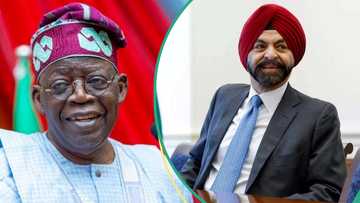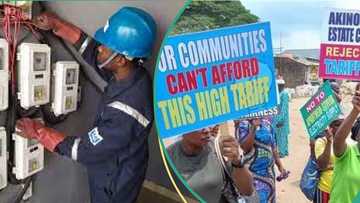Report Exposes How 99% of Nigeria's Richest Evade Tax Payment Amid Worsening Poverty
Legit.ng journalist Victor Enengedi has over a decade's experience covering Energy, MSMEs, Technology and the stock market.
A staggering 99% of Nigeria’s wealthiest individuals either evade or avoid paying taxes, leaving millions of citizens struggling to meet basic needs.
This is highlighted in two in-depth reports, "Income and Wealth Inequality in Nigeria: Trends and Drivers" and "Taxing the Rich: Fair Tax Monitor," compiled by Oxfam in Nigeria, the Tax Justice Network Africa, and the Civil Society Legislative Advocacy Centre (CISLAC).

Source: Getty Images
The reports delve into the root causes of inequality in Nigeria, particularly examining income, wealth, gender, and regional disparities.
Their conclusions are drawn from statistical data, expert analysis, and insights from key policy stakeholders.
PAY ATTENTION: Legit.ng Needs Your Help! Take our Survey Now and See Improvements at LEGIT.NG Tomorrow
Nigeria’s rich avoid taxes as hunger grips millions
Although Nigeria is the fourth-largest economy in Africa, the gains from its economic growth have mainly favoured a small group of elites, while millions of Nigerians remain in poverty.
According to the report, data from the Federal Inland Revenue Service (FIRS) and John Bean Technologies Corporation (JBT) shows that only 40 of the wealthiest Nigerians are compliant with tax regulations.
This reflects a compliance rate of just 0.035%, indicating that over 99% of Nigeria's richest individuals evade or avoid paying taxes.
Emphasizing the need for critical tax reform, John Makina, Country Director, Oxfam in Nigeria said:
"The situation in Nigeria is alarming: while millions struggle to afford their next meal, the super-rich continue to amass riches without paying their fair share of taxes. Complexities in tax laws, coupled with a lack of transparency, enable this situation, depriving the country of crucial revenue needed to invest in social protection and initiatives aimed at reducing inequality. This is a scenario we can no longer accept if we are genuinely committed to building a more equitable society."
Co-incidentally, Nigeria's Federal Inland Revenue Service (FIRS) had earlier disclosed that wealthy Nigerians and corporations understate their holdings, depriving the federal and state governments of tax revenues.
Tax evasion fuels worsening poverty
Nigeria’s economic situation is dire, with millions struggling to survive as the cost of living outpaces wage growth, leaving many in hunger and desperation.
Around 133 million people—approximately 70% of the population—are experiencing food insecurity, with women and girls hit the hardest, accounting for nearly 63% of those affected.
In rural regions, less than 40% of households have access to electricity, which significantly hampers educational and healthcare opportunities.
Women and girls face a greater share of poverty, with a literacy rate of 35% compared to 59.5% for men, and they encounter limited access to both education and land ownership.
Adding to the challenges, Nigeria is nearing bankruptcy, with poverty rates as high as 87% in states like Sokoto, compared to just 4.5% in Lagos.
The increasing debt load has led to a situation where much of the national budget is used for debt repayments rather than financing critical public services.

Read also
"The lessons are clear": World Bank mentions timeframe economic hardship will end in Nigeria
The report suggests that introducing a progressive wealth tax could raise over $7.5 billion annually.
This additional revenue could either double the government’s current health budget or cut household healthcare costs by 40%, significantly alleviating the financial strain on millions of Nigerians.
Oxfam urges the Nigerian government to take action to address the widening economic and social inequality.
It recommends increasing social investments, introducing progressive tax policies, and prioritizing investments in human capital development.
FG proposes new pattern of tax payment
In related news, Legit.ng earlier reported that the federal government had proposed a tax payment option that enables individuals to pay their taxes in instalments.
The Nigeria Tax Bill 2024, which was recently submitted to the National Assembly for approval, contained this.
If approved, this means that everyone will have the option to pay their taxes before the filing deadline, either in full at once or in instalments.
PAY ATTENTION: Сheck out news that is picked exactly for YOU ➡️ find the “Recommended for you” block on the home page and enjoy!
Source: Legit.ng



